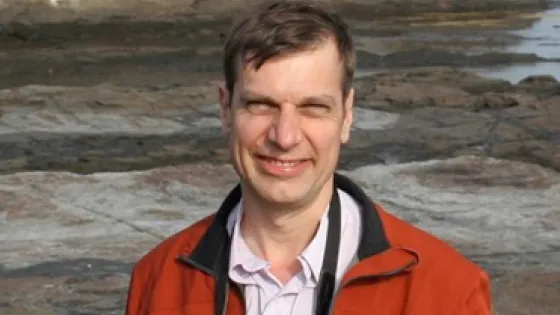E&E Seminar: Fermi problems, frameworks, and personal knowledge: insights into deep time evolutionary biology
While the path by which a scientific advance is made is not particularly relevant to science itself, the path is everything for practicing scientists.
Speakers
Event series
Content navigation
Description

While the path by which a scientific advance is made is not particularly relevant to science itself, the path is everything for practicing scientists. Thus, framing my talk epistemologically I outline some past results, including: [1] estimating the total number of T. rex that ever lived (a Fermi problem); [2] how adding the notion of budding to the interpretation of cladograms changes the how we view the evolution of the endemic gastropods in Lake Tanganyika; [3] showing that even with equilibrial diversity dynamics (ala MacArthur and Wilson) that diversity trajectories are largely non-equilibrial; and, [4] how this led to the conclusion that even though Hawaii is a model system for understanding adaptive radiation, most clades on most of islands are in evolutionary decline. Some of my current work is on the relationship between [5] power and evolution, and how this framing coupled with a chance discovery of an obscure sea urchin in Indonesia has led to a [6] new way of explaining the clade’s long-term decline. My advice to young scientists is to pay careful attention to your own interests and motivations, for in the end your contributions will be in proportion to the strength of the personal commitment and knowledge.
Biography
Charles Marshall is the Director of the University of California Museum of Paleontology, and Distinguished Professor in Departments of Integrative Biology, and Earth and Planetary Sciences. He did his B.Sc. (Honours) at the Australian National University, and Ph.D. at the University of Chicago, with a National Institutes of Health’s postdoc at Indiana University. He spent eight years UCLA, followed by 10 years as a Full Professor at Harvard University. He has been at Berkeley now for over 15 years. He has received an NSF National Young Investigator Award, the Paleontological Society's Schuchert Award, and a Guggenheim Fellowship. He has training in mathematics, physical chemistry, geology, and organismal and molecular biology. His broad research interests center on understanding the nature of evolutionary innovation and extinction over deep time. He enjoys teaching, including past courses on “Dinosaurs and their relatives”and on “Origins: from the Big Bang to the emergence of humans”.
Location
Eucalyptus Seminar Room
S205, Level 2
RN Robertson Building (46)

